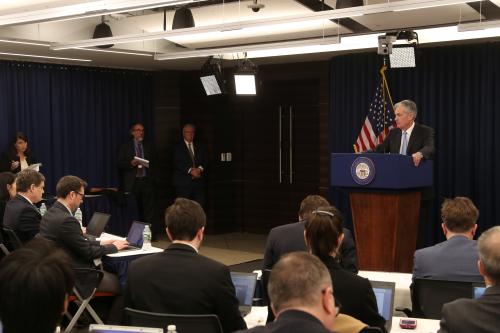The Brookings Institution is committed to quality, independence, and impact.
We are supported by a diverse array of funders. In line with our values and policies, each Brookings publication represents the sole views of its author(s).

Research
BPEA | 2003 No. 12003, No. 1
The consequences for the proper conduct of monetary policy of the
existence of a lower bound of zero for overnight nominal interest rates has
recently become a topic of lively interest. In Japan the call rate (the
overnight cash rate analogous to the federal funds rate in the United
States) has been within 50 basis points of zero since October 1995, and it
has been essentially equal to zero for most of the past four years (figure
1). Thus the Bank of Japan has had little room to further reduce shortterm
nominal interest rates in all that time. Meanwhile Japan’s growth has
remained anemic, and prices have continued to fall, suggesting a need for
monetary stimulus. Yet the usual remedy—lower short-term nominal
interest rates—is plainly unavailable. Vigorous expansion of the monetary
base has also seemed to do little to stimulate demand under these circumstances:
as figure 1 also shows, the monetary base is now more than
twice as large, relative to GDP, as it was in the early 1990s.